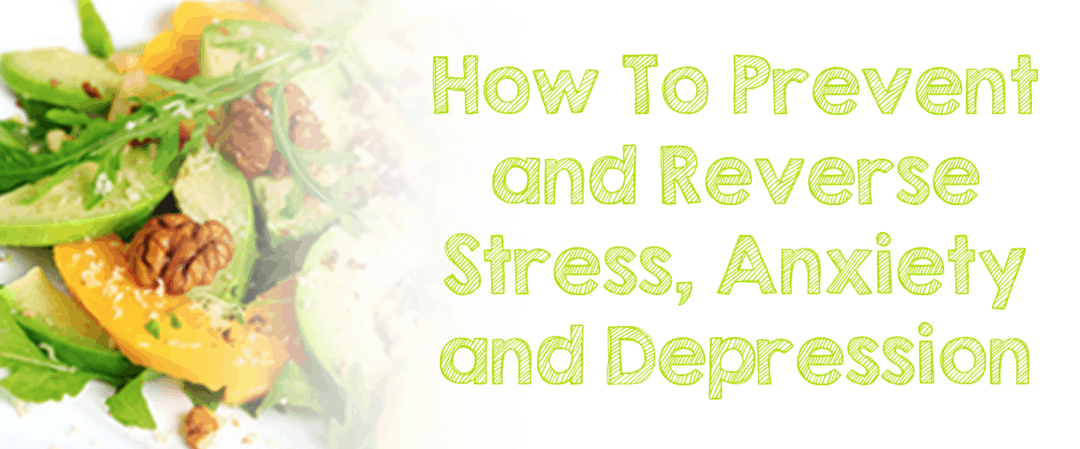Do you suffer from stress, anxiety or depression? If you answered yes, you are NOT alone.
A startling 80 percent of Americans experience intense, chronic stress, anxiety or depression. And the problem is a global one: According to the World Health Organization, more than 15 percent of the world population is suffering from a stress-related disorder. Stress is something that most, if not all, of us have in our lives more often than we would like. For the majority of people stress comes mostly from the workplace or from home. However, stress hides everywhere. Stress can be hiding even in the most pleasurable situations. On vacation, stress may be lurking at ticket counters, security checkpoints, and at the destination itself (poor weather or lost luggage). Studies show that the cumulative impact of stress and depression has been linked to a host of age-accelerating conditions and degenerative diseases, including cardiovascular disease, diabetes, and various cancers. However, you may never have considered how these emotions are caused by micronutrient (vitamin and mineral) deficiencies, and that by becoming sufficient in these very same micronutrients you can prevent and/or reverse these feelings all together.
Which is why we are thrilled to announce that we are joining our colleague and friend, Food Mood Expert Trudy Scott, as featured speakers for her FREE virtual telesummit, The Anxiety Summit.
Not only are we speaking on how micronutrients affect stress and anxiety, but we've also created a 50-page plus download on micronutrients for anxiety as a free gift for listening!
Here's a sneak peek of our guide:
Let's take an in-depth look at the 13 micronutrients used in the prevention and treatment of stress, anxiety and depression.
The B Vitamins
The B vitamins have come to be known as anti-stress nutrients because they are often the first deficiencies to develop during times of stress. While vitamins B1 an B5 help to fight off stress by maintaining the proper function of the adrenal glands – the most important glands in the fight against stress, vitamins B6 and B9 help you to better deal with the stress that you do experience because they are important for the formation of chemicals called neurotransmitters that are necessary for balancing emotions. According to study published in the Archives of Internal Medicine, you don’t need a great deficiency in the B vitamins to set in before you really start to feel it. The study revealed that if a subject was only given half the daily requirement of thiamine (vitamin B1), the subject became “irritable, depressed, quarrelsome, uncooperative, and fearful that some misfortune awaited them.”
Vitamin C
The demand for vitamin C increases ten-fold during stressful periods, which can cause this water-soluble vitamin to become depleted relatively quickly. In studies, people who have high levels of vitamin C do not show the expected mental and physical signs of stress when subjected to acute psychological challenges. What's more, they bounce back from stressful situations faster than people with low levels of vitamin C. According to the University of Maryland, even slight deficiencies of vitamin C can increase cortisol output, which spikes appetite and increases fat deposits in the belly region. So, a deficiency in C might mean a bad attitude and a big belly!
Calcium & Magnesium
Are you a stress eater? Have you been known to grab a bowl of ice cream or bag of chips when the stress comes knocking at your door? While many people say that you might be eating to stifle your emotions or anxiety we want you to know that the stress and anxiety themselves may be physically responsible for your snacking. Both magnesium and calcium deficiencies can cause food cravings for both sweet and salty foods. Stress causes both of these water-soluble minerals to be utilized quickly resulting in rapid depletion. It is because of these mineral deficiencies that you begin stress eating. So, know that you’re not mentally weak, but mineral deficient. Make sure to supplement smart, and both the stress and the food cravings will be a thing of the past.
Omega-3
Recent research shows that your omega-3 fatty acids can play a key role in keeping stress at bay. Unfortunately, our Western diet doesn’t supply us with enough of these essential fats, primary found in fish, eggs and meat, so supplementation is a smart choice for anyone who doesn’t eat fish daily. Scientists believe that omega-3 supplementation “inhibits the adrenal activation elicited by a mental stress” leaving cortisol levels “significantly blunted” when omega-3 levels are high. One study at Gettysburg College in Pennsylvania proved just how powerful omega-3 can be. Study participants who supplemented with omega-3 had significantly lower cortisol levels compared to those taking a placebo. This resulted in them shedding three and a half times more body fat, while increasing lean muscle mass.
When you register for The Anxiety Summit, you'll gain access to our free downloadable guide, that includes the remaining 8 micronutrients that are crucial in preventing and/or reversing stress, anxiety and depression.
Here's a look at some other free gifts you'll have access to:
- “Brain Warrior’s Way”: a 3-part online video series – from Dr. Daniel Amen
- “Your Health Destiny” – sneek preview chapters from Dr. Eva Selhub
- “Paleolicious Snack Ideas” – from Dr. Jill Carnahan
- “The Backpain Breakthrough” – series of videos by Joe Tatta
- “How to Rebalance Your Hormones with Food” and Recipes – from Magdalena Wszelaki
- “10 Ways to Balance Serotonin Naturally” – from Dr. Peter Bongiorno
- “Grainflammation and Anxiety” – from Dr. Peter Osborne
- “Making Fermented Vegetables” video series – with Summer Bock
The best part? You can listen from the comfort of your own home for FREE! And even listen from your computer if you prefer. We hope to see you at the summit!












